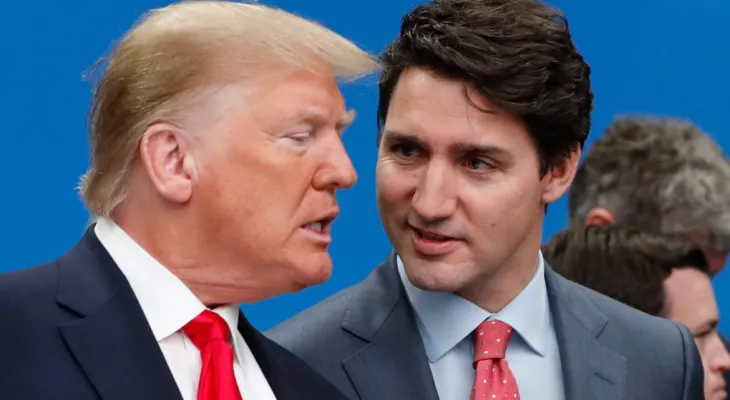Search here
Newspaper
Search here

Arab Canada News
News

Published: June 22, 2024
The provinces are engaging with both Democrats and Republicans to present their case for collaboration and to enhance the efforts made by the federal government to ensure Canada is prepared for any outcome in the upcoming U.S. elections.
Laura Dawson, an expert in Canadian-American relations and executive director of the Future Borders Coalition, said: "I see the provinces and Team Canada intensifying their efforts."
Prime Minister Justin Trudeau, whose Liberals came to power in October 2015, faced criticism for not being prepared for Donald Trump's first presidency after the 2016 U.S. elections.
Their relationship was notably strained throughout the four years of the Republican leader's term.
The Liberal government is taking a more proactive approach this time to enhance relations with both the Trump and Joe Biden camps as the tight presidential race continues.
Industry Minister François-Philippe Champagne is making regular visits south of the border as part of Team Canada's engagement strategy. Canada's Ambassador to the United States, Kirsten Hillman, has been crossing piers from state to state alongside business leaders and stakeholder groups.
Dawson said that federal representatives will go to their American counterparts carrying key messages on how to "build things together."
On the other hand, provinces are diving into the details in areas such as hydroelectric power, agricultural issues, integrated supply chains in specific sectors, and joint investments at the local and regional levels.
She said: "I think Canada is really relying on provincial representatives for specific information and identifying areas where Americans and Canadians work together."
Manitoba Premier Wab Kinew, accompanied by former Prime Minister and former Canadian Ambassador to the U.S. Gary Doer, recently traveled to Washington, D.C., and New York City.
Kinew said: "The purpose of our trip was to build relationships on both sides of the corridor."
The main concern for Canadians engaging with their American counterparts is the looming review of the U.S.-Mexico-Canada Agreement in 2026. Both presidential candidates are promoting protectionist policies that could create uncertainty for Canadian trade.
During his presidency, Trump pushed for a renegotiation of the North American Free Trade Agreement and imposed billions of dollars in tariffs, particularly on Chinese imports.
Biden has largely kept these tariffs in place, despite promises to eliminate them. There have also been tensions surrounding Biden's administration's Buy American rules.
Kinew said his team wants to ensure an understanding that trade with Manitoba is beneficial for the U.S. and its citizens.
He added, "If we make the case for self-interest to the American public, that’s a very good basis for us to continue thriving on both sides of the border."
James Rajotte, Alberta's chief representative in the U.S., said it's essential to maintain a constructive working relationship.
Rajotte emphasized: "It's clear that the quality of life for people living in Alberta is very closely tied to the political decisions here and the trade relationship between us."
Rajotte said, while navigating conversations with his American counterparts, "You have to read your audience."
In some discussions, he may lead with Alberta's record on emissions reductions. In other cases, Rajotte may focus on the role Canada and Alberta can play in energy reliability and security.
He said: "On a lot of trade issues, the Trump administration and the Biden administration aren't really that far apart."
Andrew Furey, Premier of Newfoundland and Labrador, also recently traveled to Washington. His office noted that it’s important to show that the relationship "is characterized by integrative rather than competitive interests."
The main attraction for many Canadians is the country’s vital mineral supplies.
Kinew said: "This is an area where even amid a heated election season, there is some bipartisan appeal."
Kinew added that Democrats want critical minerals to enhance electrical and climate agendas, while Republicans want them for defense applications and public economic development.
David Patterson, the province's representative in Washington, said in a statement sent via email: "We are seeing a significant interest now in the benefits of critical minerals and nuclear energy in Ontario among our partners in the U.S."
Dawson said Canadians need to focus on a key word that resonates with Americans: security, noting that this could mean energy security, financial security, or even Arctic security.
"Any (phrase) that contains the word 'security' gets much more attention than just a phrase like 'we're building things together.'
Comments